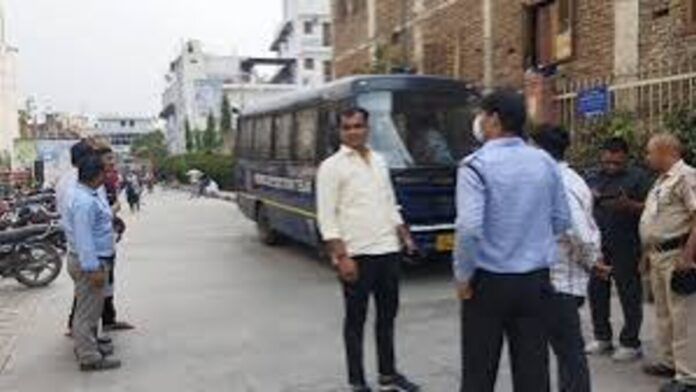Emails containing bomb threats were sent to eight city hospitals and IGI Airport, which ultimately proved to be fictitious, only days after over 150 schools in Delhi-NCR were subjected to an unprecedented bomb scare.
A senior official of the Delhi Fire Services (DFS) said that reports of bomb threats came from several hospitals, including Burari Hospital, Sanjay Gandhi Hospital, Guru Teg Bahadur Hospital, Bara Hindu Rao Hospital, Janakpuri Super Speciality Hospital, Deen Dayal Upadhyay, and Dabri’s Dada Dev Hospital.
“On May 12, at about 3.30 pm, a bomb hoax mail was received at GTB Hospital, GTB Enclave. Hospital authorities informed the local police about that mail. Immediately police swung into action and called the Bomb Disposal Squad which inspected GTB Hospital and Delhi State Cancer Institute premises,” DCP Shahdara said adding that nothing suspicious was found.
In the meantime, the Municipal Corporation of Delhi (MCD) responded to the bomb threat that the Hindu Rao Hospital had received by stating that more security had been installed on the property.
“Today the Administration of Hindu Rao Hospital came to know about a Bomb Threat received by the SHO of the Police station under whose jurisdiction Hindu Rao Hospital falls. SHO received an Email regarding the presence of a bomb in the premises of the Hospital. SHO inspected the whole premises with the Dog Squad and bomb detection squad. No threat was found,” MCD said in a statement.
“Few openings were instructed to be closed. Directions to increase security checks at night and increased questioning and inspection issued. OT, Emergency, CCU and Blood Bank equipped for any adverse event. The hospital is on high alert for QRT activation. Hospital staff have also been asked to be vigilant,” it added.
All of the city’s hospitals now have more security, and the airport has more police officers on duty. Nevertheless, nothing unusual has yet been found at any of the locations.
a snapshot of a questionable email that threatened to blow up the bombs that were supposedly planted inside the hospital. The picture is trending on social media. The email is being looked at by the police.
Officials from the Fire Services said that an email threatening to blow up the Indira Gandhi International Airport was also received on Sunday night.
Sources state that at 6:19 p.m., a call was received at IGI Terminal 3, which prompted the Delhi Police and CISF officers to go into alert mode.
Following bomb threats received on May 1, almost 130 schools in the Delhi-NCR had to quickly evacuate their student bodies. Not to worry, the Ministry of Home Affairs said, noting that the threats were phone scams.
Top intelligence sources had, however, raised the possibility that the “hoax call” was meant to incite fear.
“Bomb scare is a regular feature these days and agencies are trying to find out details from a period. This is happening on a regular frequency now. Similar threats were reported from Bengaluru and even a few schools in Delhi earlier,” the intelligence agency sources had told news agency.
Notably, central agencies have found it difficult to gather information about the threat mail that was sent to 131 schools in Delhi-NCR due to four IP addresses that are allegedly manufactured by a mailing corporation based in Russia and that were transmitted from Moscow without leaving any trace online.
Importantly, a government operation unit that keeps an eye on websites was able to link two IP addresses to Mumbai.
While the agencies were able to get some fundamental technical information, a breakthrough is still required in order to identify the ID’s user. Agencies also discovered that the message might have been sent via message.au’s mobile application rather than its web site, which is the biggest Russian mailing platform.
Ajay Bhalla, the Union Home Secretary, examined the circumstances last week and emphasised the necessity of bolstering security and routine email monitoring in schools.
In order to deal with any such issue in the future, the home secretary underlined the necessity of creating thorough protocols and standard operating procedures (SOP).
He also directed the Delhi Police and schools to maintain close collaboration for a “effective response mechanism” in order to prevent any needless fear brought on by false information.




